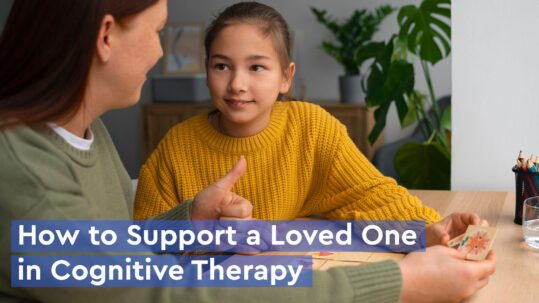How Depression Affects the Brain
Depression impacts cognitive function. Studies show that patients suffering from depression exhibit have difficulties with making, using, and storing memories. Studies show that cognitive training can help remediate some of the side effects of depression, mainly difficulties with memory.
How Does Depression Affect Memory?
The hippocampus is the brain’s memory center. When depression goes untreated the hippocampus’s structure experiences a structural change. Studies have noted that a decrease in the hippocampal volume is a biological hallmark of depression. When the hippocampus is underperforming, the ability of someone to recall working or long term memories is decreased.
Why Fixing Memory is Important when Treating Depression?
Memory complications are one of the biggest complaints of patients suffering from depression. For depressed individuals, they become upset and less confident when they experience memory lapses. Learning and participating in work or school activities can become disheartening when information is not easily accessible. It hinders their ability to feel confident and engage with therapy. Instead of healing, their cycle of emotional and cognitive decline continues.
What is the New Approach?
There are two approaches that psychologists and researchers are studying to help with depression and memory. The first is working on the neuroplasticity of the brain. Neuroplasticity focuses on rewiring and modifying circuitry of the brain for optimal functioning. The hippocampus is one of the areas of the brain where neuroplasticity can have positive benefits.
The other technique is cognitive training. Cognitive training (CT) has demonstrated promise in helping people with major depressive disorder (MDD) improve memory functioning. In a study of 16 participants with MDD, participants underwent a special kind of CT, called NEAR, for 10 weeks. After the study was over, tests such as the RAVLT-learn and RAVLT-delay, Rey Complex Figure 3-Minute Recall (non-verbal memory), showed positive results.
More research is needed to be done to understand how exactly NEAR’s physiological effects. Next time you have a client who tells you they are experiencing depression, ask them if they experience memory problems. Working on these difficulties may help them with their everyday life, and improve their mood.
Sources:
Fuchs, E., Czeh, B., Kole, M.H.P., Michaelis, T., Lucassen, P.J., 2004. Alterations of neuroplasticity in depression: the hippocampus and beyond. Eur. Neuropsychopharmacol. 14 (Suppl 5), S481–S490.
Hickie, I., Naismith, S., Ward, P.B., Turner, K., Scott, E., Mitchell, P., Wilhelm, K., Parker, G., 2005. Reduced hippocampal volumes and memory loss in patients with early- and late-onset depression. Br. J. Psychiatry 186, 197–202.
Medalia, A., Freilich, B., 2008. The Neuropsychological Educational Approach to Cognitive Remediation (NEAR) model: practice principles and outcome studies. Am. J. Psychiatr. Rehabil. 11, 123–143.
Naismith, S.L., Hickie, I.B., Turner, K., Little, C.L., Winter, V., Ward, P.B., Wilhelm, K., Mitchell, P., Parker, G., 2003. Neuropsychological performance in patients with depression is associated with clinical, etiological and genetic risk factors. J. Clin. Exp. Neuropsychol. 25, 866–877.
Naismith, S.L., Hickie, I.B., Ward, P.B., Scott, E., Little, C., 2006. Impaired implicit sequence learning in depression: a probe for frontostriatal dysfunction? Psychol. Med. 36, 313–323.
Naismith, S.L., Longley, W.A., Scott, E.M., Hickie, I.B., 2007. Disability in major depression related to self-rated and objectively-measured codeficits: a preliminary study. Biomed. Central Psychiatry 7, 32.
Naismith, S. L., Redoblado-Hodge, M. A., Lewis, S. J., Scott, E. M., & Hickie, I. B. (2010). Cognitive training in affective disorders improves memory: a preliminary study using the NEAR approach. Journal of affective disorders, 121(3), 258-262.
Redoblado-Hodge, M.A., Siciliano, D., Withey, P., Moss, B., Moore, G., Judd, G., Shores, E.A., Harris, A., 2008. A randomized controlled trial of cognitive remediation in schizophrenia (Advance Access), published online: doi:10.1093/schbul/sbn102. Schizophr. Bull.
Sheline, Y.I., Gado, M.H., Kraemer, H.C., 2003. Untreated depression and hippocampal volume loss. Am. J. Psychiatry 160, 1516–1518.
Williams, J.M., Scott, J., 1988. Autobiographical memory in depression. Psychol. Med. 18, 689–695.









